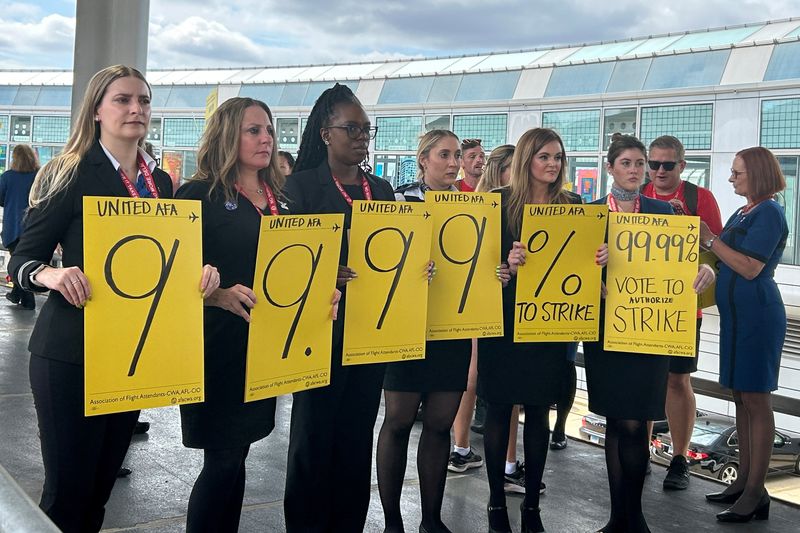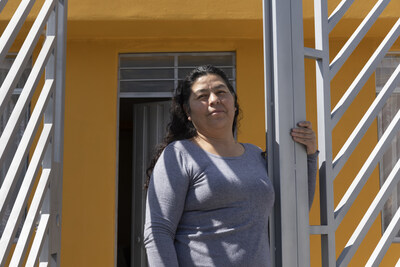US airline flight crews confident and angry as unions seek richer contracts
By Rajesh Kumar Singh
CHICAGO (Reuters) – Alaska Airlines flight attendant Rebecca Owens works 10 hours a day but only gets paid for half that time – a legacy of a common U.S. airline policy to pay cabin crew members only when planes are in motion. Owens, and thousands of cabin crew like her, wants that to change.
In August, 68% of Alaska flight attendants in a ratification vote rejected a contract that would have increased average pay by 32% over three years. It was also the first labor agreement that would have legally required airlines to start the clock for paying flight attendants when passengers are boarding, not when the flight starts to taxi down the runway.
Delta Air Lines, the only major U.S. airline whose flight attendants are not in a union, instituted boarding pay for its flight attendants at half of their hourly wages in 2022 when they were trying to organize.
Alaska and union leaders have resumed federally mediated contract negotiations this week.
“I want to be compensated for my time at work and want a livable wage so that you can stand on your own while working this job,” said Owens, 35. She said that without her husband’s income, her family would not be able to afford basic needs.
Negotiations at Alaska are being closely watched because one airline’s contract tends to become an industry benchmark. Cabin crews at United Airlines, Frontier and American Airlines’ regional subsidiary PSA Airlines are also negotiating new labor agreements.
Crews at Southwest Airlines rejected two contract offers before ratifying a deal in April that included a 22% pay raise this year and 3% per year raises through 2027.
Flight attendants have been negotiating with more confidence this year, encouraged by improved airline earnings and bumper pay deals negotiated by pilot unions in the past two years and Boeing factory workers this year, according to interviews with a dozen airline crew and union officials.
Plane crew told Reuters these negotiations are also informed by years of resentment over pay that has lagged inflation while working hours have increased, hurting their quality of life.
Cabin crew at Alaska and United have authorized their unions to call strikes if negotiators cannot reach a contract agreement.
Alaska Airlines responded to a question from Reuters saying its goal is to provide “flight attendants – and all employees – with market-competitive wages and benefits.” United did not respond to a request for comment.
BURN OUT
In previous contract negotiations, airlines secured concessions from workers as the industry was struggling due to economic downturns or fallout from the COVID pandemic.




Leave a Reply